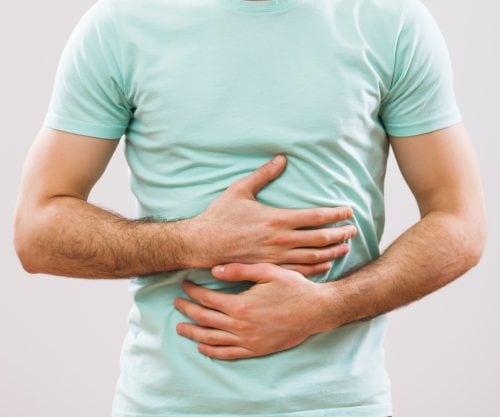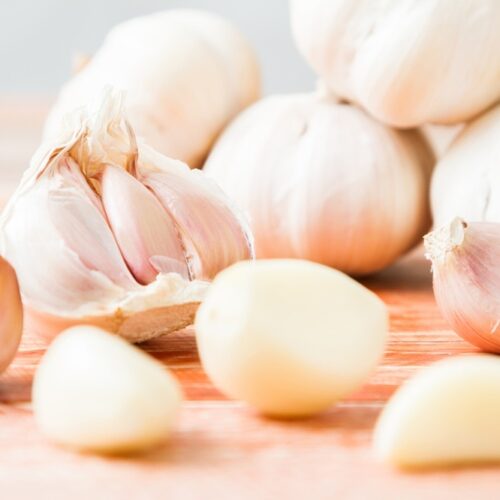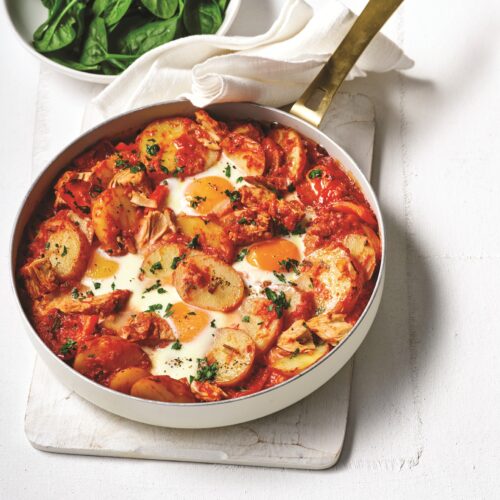
Boasting a huge network of nerve cells, your gut literally has a mind of its own — which has a huge impact on the way you think and feel. Ravinder Lilly explains.
Did you know you have two brains? Besides the smarts in your head, you have a network of 100 million neurons (nerve cells) stretching from your oesophagus to your colon — that’s more than you’ll find in your entire spinal cord! These neural connections form your enteric brain. The word enteric means ‘relating to the intestines’, so you could call this second brain your gut brain.
Your brains in conversation
Your two brains are in constant communication by way of the vagus nerve. (The word vagus is Latin for ‘wandering’.) This large meandering nerve starts at the back of the skull and ends in the abdomen, connecting with the ears, voice box, heart, lungs and stomach along the way. Nerve cells send and receive messages via chemical compounds that can alter these signals, causing both positive and negative effects.
You know the ‘butterflies’ that tickle your stomach when you’re a little anxious? Does your gut play up when you’re stressed? That means you’ve felt your gut brain communicating with the brain in your head, because this exchange is part of your body’s natural stress response.
Both your brains are affected by emotions as well as by your lifestyle choices, especially your diet. Drinks such as alcohol, soft drinks and even water have an impact on neurons releasing either feel-good chemicals or stress chemicals, or a mixture of both. In the case of alcohol, having one drink may help you feel relaxed, but downing one too many triggers the release of stress hormones — the opposite (and unwelcome) effect.
The trillions of bacteria living in your gastrointestinal tract also produce and release feel-good chemicals and stress chemicals.Research with mice shows that when these gut bacteria are manipulated (whether that’s by prebiotics, probiotics, antibiotics or dietary changes), mood and behaviour can change, too. (The literal meaning of the word probiotic is ‘for life’.) Because of such findings, future psychiatric and psychological treatments may well involve both brains.
At this point, you might want to remember Hippocrates’ advice to “let food be thy medicine”.
The hidden power of your gut bacteria
Your gut brain uses more than 30 different types of neurotransmitters. In the future, scientists might be able to harness these clever chemicals to create medicines that mimic the positive benefits of neurochemicals produced by gut microbes. Another possible scenario is that new treatments may involve identifying, growing and harvesting the microbes that make mood-boosting chemicals, enabling scientists to formulate new probiotic supplements.
In the meantime, keeping your gut microbes happily well-fed is a great way to help boost your mood and your health.
Your bacterial army in battle
If the gut’s delicate balance of beneficial microbes is upset and harmful microbes (pathogens) take over, so can disease. Unfortunately, these pathogens release toxins that can depress mood. You could say that your gut bacteria are waging a constant war as the good bacteria battle to keep the bad bugs at bay. To help the good guys win, try adopting the following four healthy habits.
1. Give processed foods the push
Fatty fast food is low in fibre and plant foods, both of which provide your good gut bacteria with the nutrients they need. Consequently, a diet full of fast food provides less food for beneficial microbes, helping potentially harmful pathogens to dominate.
Your individual mix of gut flora can even affect your appetite. The bacterium Helicobacter pylori, for example, inhibits the hunger-enhancing hormone ghrelin, thus curbing cravings.
Gut bacteria can also influence sugar cravings. When two groups of mice consumed a sugar solution in a 2012 French study, those with healthy gut flora ate less than mice without gut flora.
2. Enjoy some culture
Prebiotics are specific carbohydrates that we can’t digest. As a result, prebiotics remain intact in the gut, where they are essential fuel for our healthy bacteria. Eat bananas, onions, legumes and cold (cooked) potato and pasta, all of which are high in resistant starch and therefore prebiotics.
A way to add more healthy flora in your gut (and crowd out potential pathogens) is to eat food containing probiotics, or take a probiotic supplement. Having plenty of these beneficial microbes can also help your gut produce more of the proteins that have the ability to suppress appetite and increase feelings of fullness.
Probiotics have yet another welcome power — they can lower your stomach levels of substance P, a neurotransmitter that’s involved in pain, inflammation, and even anxiety and depression.
In a 2013 US study, scientists gave healthy women probiotic yoghurt. At the end of the four-week study, brain scans showed that the regions involved in emotion and sensation were less reactive.
Clearly, we’re all likely to benefit from adding more probiotic foods to our diets. Yoghurts are a good natural source, so look for brands with added live cultures, such as Lactobacillus acidophilus and Bifidobacterium bifidum.
Like dill pickles and other pickled vegetables, fermented cabbage is also full of live cultures, along with vitamins A, B and E. Try traditional German sauerkraut or the spicy Korean version, kimchi. Other probiotic Asian foods include tempeh (a fermented soybean protein that can take the place of meat in your meals) and miso, a paste made from fermented soy beans and rye, rice or barley. Add a tablespoon of miso to hot water for a quick soup with a probiotic blast!
3. Move more
Staying active supports the function of your gastrointestinal tract, helping it expel waste from your system. Physical activity may even benefit gut microbes, according to a small 2014 Irish study of elite rugby players.
Although the athletes in this study trained much harder than the average person, they also ate more food, including plenty of fruit and veges. The rugby players had a significantly more diverse range of gut bacteria in comparison with other men in the study. Science now shows that the richer our gut flora, the healthier we are.
4. Stress less
We all suffer emotional strain at times, but it’s important to keep stress in check.
During times of stress, your muscles constrict. This includes gut muscles, so ridding yourself of as much stress as possible helps your digestive system to function. Relaxing helps your body lift its levels of healthy microbes and lower levels of stress chemicals.
Stress can reduce the amount of friendly bacteria in your digestive system, as can cytokines, defensive molecules that the gut produces during infection. Pro-inflammatory cytokines can disrupt brain chemistry, making people more vulnerable to anxiety and depression.
In 2013, US animal research revealed that offspring born to stressed mothers had 20 genes adversely affected by a reduction in the good Lactobacillus bacteria. These genes included those involved in the production of new brain cells and the growth of brain connections. Maternal stress also lowered the levels of a chemical that protects the brain from harmful oxidative stress.
Meet your friendly tenants, your body’s healthy bacteria
About 90 per cent of your body’s cells are bacterial, and we’re just starting to understand their power. Scientists have been unable to observe our bacteria in the lab because these microbes need a living human to survive, but here’s what we do know:
- As babies in the womb, our bodies are sterile; we get our first dose of good bacteria while passing through the birth canal.
- These beneficial bacteria make essential nutrients, including B-group vitamins (for energy) and vitamin K (for blood clotting and strong bones).
- They can also destroy potential carcinogens.
- Healthy bacteria may lift your mood and combat the blues.
- They may also help control appetite.
- The foods we eat play an important role in keeping our gut bacteria both healthy and diverse, and the more complex our bacterial mix, the better.
Gut-friendly foods
Prebiotics
Some types of dietary fibre are prebiotic. Foods containing prebiotics feed our good bacteria so they can thrive. These include:
- asparagus
- cooked and cooled pasta
- cooked and cooled potatoes
- firm bananas
- garlic
- Jerusalem artichoke
- leeks
- legumes such as chickpeas, lentils or red kidney beans
- onions
- whole grains, such as rolled oats or brown rice
Probiotics
Foods containing probiotics (live bacteria) add to our population of good bacteria, although this is temporary, so it’s a good idea to regularly consume probiotic foods.
- kefir
- kimchi
- miso
- pickled vegetables (naturally fermented in a salt water solution — not with vinegar)
- sauerkraut
- probiotic drinks, such as Yakult
- tempeh
- yoghurt with live cultures
Bottom line
We know quite a lot about gut bacteria, although a lot of what we do know is still from animal studies and there is an awful lot yet to learn. Scientists will spend many years to come trying to understand exactly how the relationship between our diet, gut bacteria, physical activity, stress, sleep, mood and immune systems actually works. However it’s worth remembering what we do know: a healthy diet that includes plenty of prebiotic and probiotic foods will enhance our gut health which will enhance our overall well-being.
Article sources and references
- Adam Hadhazy A. 2010. Think twice: how the gut’s “second brain” influences mood and wellbeing. Scientific American February 12, 2010https://www.scientificamerican.com/article/gut-second-brain/
- Bailey MT et al. 2011. Exposure to a social stressor alters the structure of the intestinal microbiota: implications for stressor-induced immunomodulation. Brain, Behavior & Immunity 25:397-407https://www.ncbi.nlm.nih.gov/pubmed/21040780
- Bowe WP & Logan AC. 211. Acne vulgaris, probiotics and the gut-brain-skin axis — back to the future? Gut Pathogens 3:1https://www.ncbi.nlm.nih.gov/pubmed/21281494
- Cani PD et al. 2009. Gut microbiota fermentation of prebiotics increases satietogenic and incretin gut peptide production with consequences for appetite sensation and glucose response after a meal. American Journal of Clinical Nutrition 90:1236-43https://www.ncbi.nlm.nih.gov/pubmed/19776140
- Carpenter S. 2012. That gut feeling. Monitor on Psychology 43:50https://www.apa.org/monitor/2012/09/gut-feeling
- Clarke SF et al. 2014. Exercise and associated dietary extremes impact on gut microbial diversity. Gut 63:1913-20https://www.ncbi.nlm.nih.gov/pubmed/25021423
- Hosoda M et al. 1996. Effect of administration of milk fermented with Lactobacillus acidophilus LA-2 on fecal mutagenicity and microflora in the human intestine. Journal of Dairy Science 79:745-9https://www.ncbi.nlm.nih.gov/pubmed/8792276
- Griggs J. 2013. Pregnant mother’s stress affects baby’s gut and brain. New Scientist 15 November 2013https://www.sciencedirect.com/science/article/pii/S0262407913627281
- Neufeld KA & Foster JA. 2009. Effects of gut microbiota on the brain: implications for psychiatry. Journal of Psychiatry & Neuroscience 34: 230-1https://www.ncbi.nlm.nih.gov/pmc/articles/PMC2674977/
- Norris J. 2014. Do Gut Bacteria Rule Our Minds? University of California, San Francisco Slavin J. 2013. Fiber and prebiotics: mechanisms and health benefits. Nutrients 5:1417-35https://www.ucsf.edu/news/2014/08/116526/do-gut-bacteria-rule-our-minds
- Swartz TD et al. 2012 Up-regulation of intestinal type 1 taste receptor 3 and sodium glucose luminal transporter-1 expression and increased sucrose intake in mice lacking gut microbiota. British Journal of Nutrition 107:621-30https://www.ncbi.nlm.nih.gov/pubmed/21781379
- Tillisch K et al. 2013. Consumption of fermented milk product with probiotic modulates brain activity. Gastroenerology 144: 1394–1401https://www.ncbi.nlm.nih.gov/pubmed/23474283
www.healthyfood.com











